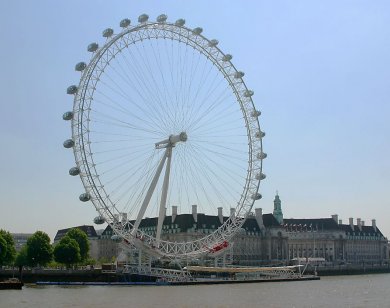TPT gives some advice to the Labour Party

The local elections and the recent political climate have been extremely disappointing for Labour. Polling worse than the Liberal Democrats in the local elections and losing over three hundred seats while trailing in the polls simply cannot be spun. It also raises the question of why this happened and where Labour go from here. The most obvious reason why Labour, and Livingstone, did so badly was simply that they have been in power for eleven years. After at most one term of incumbency advantage, all governments gradually become less popular over time as voters seek some sort of change, even if the change on offer is not something they would normally select. It is no coincidence that both British and American politics seems to operate in partisan cycles of 8 to 12 years. However, this factor does not suggest any way forward for the government and it is an incomplete and unsatisfactory explanation.
The real roots of Labour’s current poor performance lie in the 2005 election. That election was characterised by a fear in the last few weeks that poor turnout among traditional supporters would deliver a shock victory to the Conservatives. This led Tony Blair to make one of the major strategic mistakes of his premiership which was to transfer command of the campaign and organisation from Alan Milburn to Gordon Brown. Not only would this sow the seeds of Blair’s exit at the hands of Brown’s cronies, but it would also pave the way for Brown to be coronated without the leadership challenge from the modernisers that would either have exposed his flaws or at least kept him on his feet. The emphasis on core voters, or what the party’s strategists perceived to be their base, also led the government to take their eyes off the vital centre and prevented the government from fully defending their foreign policy.
While the government has been brave in its continued attempts to reform the public services it seems that it is too ready to back down in the face of criticism from vested interests, whether in the police, armed forces or the health service. This has meant that Britain failed to adopt the American counterinsurgency strategy of getting in the terrorists’ face in Iraq and it has created a situation where the Association of Chief Police Officers can effectively veto the government’s reclassification of cannabis, by giving notice that they will not enforce the law. While the opposition misses no opportunity to pander to such groups, and a Conservative government led by David Cameron would encourage such interests, Labour must have confidence enough to overrule the proclaimed experts. The government also needs to accept that, while it has shown courageous leadership of issues such as gay marriage, it needs to recognise that, at the same time as promoting tolerance, there is nothing wrong with promoting the two parent family as an ideal.
The Labour Party also needs to have a long think about Gordon Brown. Although his emphasis on short term gestures served the party well when a snap election seemed possible, he now seems incapable of the transition to an extended period of governing. Although he has correctly decided to keep troops in Iraq, seems to be starting to make some noises about law and order and has broken with Bob Shrum, Brown generally seems to be unsure about where he wants to take the country. Whether he is presented with a bottle of whisky and a revolver or is fully backed, the party cannot afford the low level sniping that characterised the Major government from ‘Black Wednesday’ onwards. A challenge from Charles Clarke or, at the very least, notice that Brown has until the conference to pull his socks up would be the best solution. However, if his critics are too afraid to challenge him they must then have the courage to fully support him. It would help matter if Brown acknowledged that some policies, such as ID cards and the tax changes, may be worth reconsidering.
Although there are considerable grounds for improvement it is important to recognise both that the government has achieved a lot and the alternatives would be disastrous for Britain. The government has managed to improve Britain’s standing with America and Europe, it has helped deliver democracy around the world while it reforming both our constitution and public services. It has also managed to make Britain a fairer country without letting public expenditure spiral out of control or harming economic competitiveness. It was with pride that I voted for Labour in 2001, 2005 and last week. Although I will admit that some Liberal Democrats have a few interesting ideas on economic and financial policy, almost of their policies on defence, social policy and other issues are unworkable. Similarly, the Conservatives seem to flip from rabid populism to libertarian elitism and back. There are also serious question marks about David Cameron’s ability to handle either foreign or economic policy, though questions did not stop Boris Johnson being elected Mayor of London. It is precisely because the government has achieved so much, that it is worth taking radical steps to protect its achievements.








